Inside story: How our athletes and sports scientists are tackling the draining RED-S
It’s a myth that’s been long held in sporting circles – that athletes shouldn’t worry about missing their periods. But the reality is much scarier. Read the inside story here.

Women's sport
Don't miss out on the headlines from Women's sport. Followed categories will be added to My News.
Athletes don’t get periods – if they do, they’re not training hard enough.
That’s what Commonwealth Games gold medallist Jemima Montag assumed when her period disappeared as a teenager.
The gold medal-winning race walker remembers having to explain to high school friends why she never had any spare tampons in her backpack.
“I’d just say, it’s common for endurance athletes not to menstruate, I’m just never going to get (my period) – how great,” Montag said.
“It was accepted, and it went on for years and years,
“It wasn’t until I became aware of the consequences of amenorrhoea (missing periods), through speaking to sports doctors and dietitians, that I realised that I really needed to get on to it.”
Kayo is your ticket to the best sport streaming Live & On-Demand. New to Kayo? Try 14-Days Free Now >
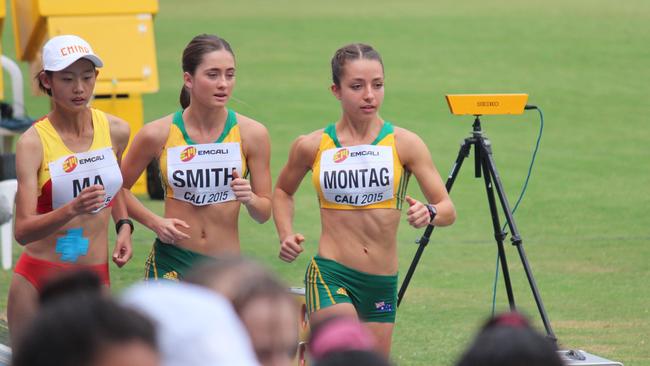
When Montag finished high school, her training schedule ramped up. She began studying a bachelor of science at university, learning Spanish, teaching piano and tutoring students. She even started her own cooking business.
It was a lot to juggle, but Montag thought athletes could do it all.
In 2018, she won gold in the 20km walk at the Commonwealth Games and was tracking well ahead of the Tokyo Olympic Games.
But then everything came crashing down.
“I tend to over commit and I struggle to say no to people and opportunities … I’d end up collapsing into bed at the end of the day, but not sleeping well because I was stressed and overthinking,” Montag said.
“Every week it’d get to Thursday and I just felt spent. It got to a stage where I just hated Thursdays.”
A few weeks after her Commonwealth Games victory on the Gold Coast, Montag was disqualified at the IAAF World Road Race Walking Team Championships.
She began working closely with Athletics Australia’s sports dietitian Jessica Rothwell and underwent a series of tests that led to her being diagnosed with Relative Energy Deficiency Syndrome (RED-S).
The condition is common among female athletes and can have long-term impacts on performance, bone health, fertility and mental health.
RED-S occurs when there’s an imbalance between a person’s energy input and energy output – leaving less energy to support normal physiological functioning.
The condition can be difficult to detect, but a major indicator for females is experiencing irregular or no periods.
“My training load doubled when I finished high school, but my fuelling probably halved. This was influenced by the current social media frenzy that encourages an obsession with ‘correct’ or ‘clean eating’, and the idea that leaner equals faster,” Montag said.
“We did resting metabolic rate tests and scans – it popped me in that RED-S danger zone. I was lucky to have genetically strong bones so I didn’t suffer any stress injuries at that time.

“I learnt that periods are actually a biological marker of health, not the burden that my teenage self wished away. It’s also not as simple as just training and food, it’s your overall load, which includes stress and other commitments.”
Montag worked hard to reverse RED-S by adjusting her training, diet and recovery habits. She also came off the contraceptive pill to regulate her natural periods.
Montag recalls struggling ahead of the 2019 World Championships in Qatar as her body and metabolism began to change.
“I didn’t think I looked like someone who should be going to the world champs. I wasn’t lean enough, all the photos of girls competing looked very different to how I felt – I had a lot of self doubt,” Montag said.
“I needed to be patient and trust the health professionals on my team. I think the most helpful shift was to start focusing on function over form. And a few weeks later, I finished 10th at the world champs.
“Being energy deficient can seem beneficial in the short term – things feel easier and you’re a bit lighter – but that only lasts for so long.”
Last year, Montag qualified for the Tokyo Olympic Games.
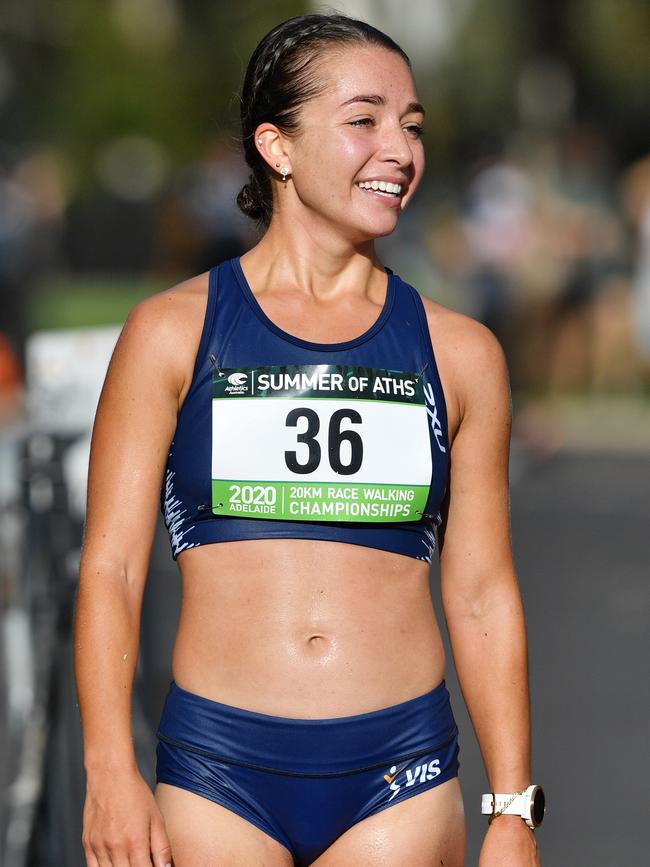
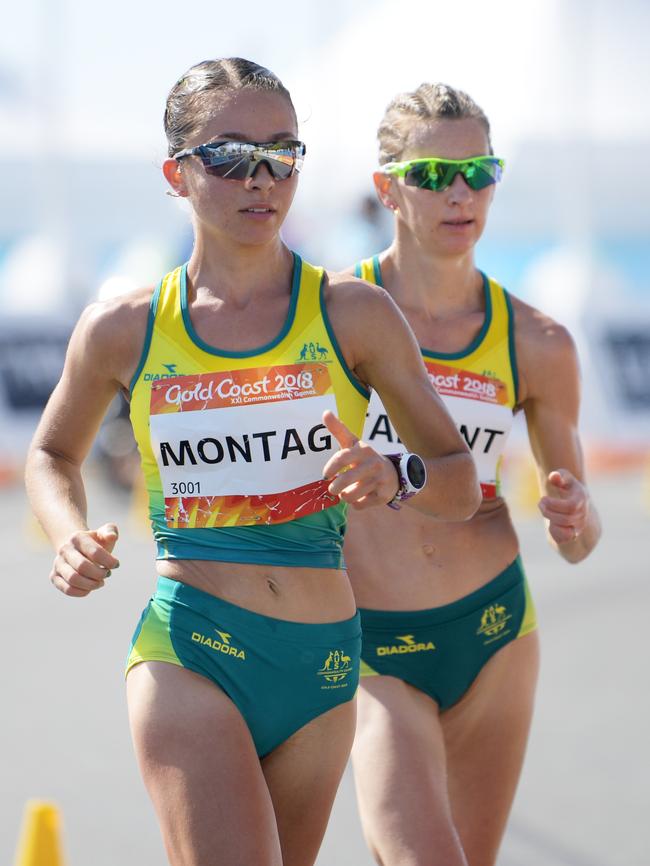
The 23-year-old has regained control of her heath and she now actively tracks her menstrual cycle.
“It can be a taboo topic and some women can wish it away, but we’re lucky to have the period as an indicator to whether we’ve got adequate energy, whether we’re recovering and fuelling enough between sessions,” Montag said.
“I know that as soon as mine is a little late, shorter or lighter, it indicates I might need to back off or that something isn’t balanced.”
Montag hopes to spread awareness and empower athletes, coaches and all women to learn about the dangers of RED-S.
“Performance is my priority. I once believed that being in a thinner body would lead to better performances,” Montag said.
“Now I know that being in tune with my body, treating it respectfully and focusing on function, that’s the key to high performance.”
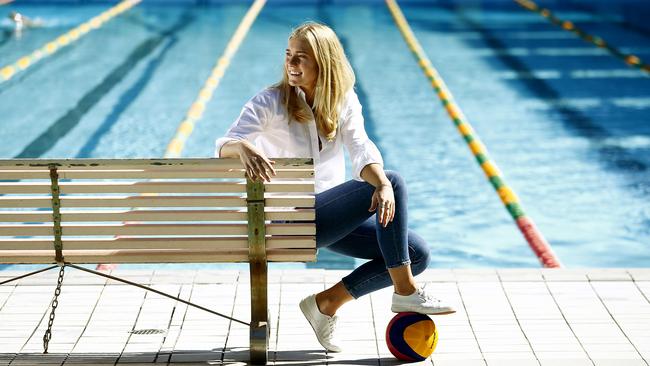
‘WE NEED BETTER EDUCATION’
HANNAH Buckling never used to dwell on exhaustion.
Why should she? All athletes are exhausted.
Buckling was training full time with the Australian Stingers – that involved around five hours in the pool each day plus weights sessions throughout the week. Of course she felt tired.
On top of that, the water polo star was studying medicine full time at university.
Anyway, between all the labs and training sessions, Buckling had literally no time to worry about exhaustion.
But when she arrived at the AIS for camp in September 2019, the Rio Olympian was told that she’d developed Low Energy Availability (LEA), a condition that often develops into RED-S.
“I was never formally diagnosed with RED-S, but I was flagged pretty early on as being someone who was at risk,” Buckling said.
“I had amenorrhoea for a couple of months, but that also coincided with coming off the contraceptive pill … that and just being exhausted all the time were the main two symptoms
“The assumption is that when you’re doing all of these things you’re just supposed to be exhausted all of the time. I thought it was normal so I kept on pushing through.”
Buckling underwent extensive medical tests to confirm the diagnosis.
“I had a scan that looked at lean muscle mass, fat mass, we did bone density scans, we did our resting metabolic rate, questionnaires regarding food intake, energy levels, menstruation, a general health screening, and history of recurrent illnesses,” Buckling recalled.
The Olympian spent the next few months working with AIS dietitian Louise Burke on adjusting her eating habits to reverse her LEA.
“We did a food diary and looked at what I was eating. I had a very healthy and balanced diet and was eating enough during the day, my intake was good. But the timing of it all was wrong,” Buckling said.
“With the dining hall (at the AIS), you eat at breakfast, lunch and dinner. But that doesn‘t correlate with your training.
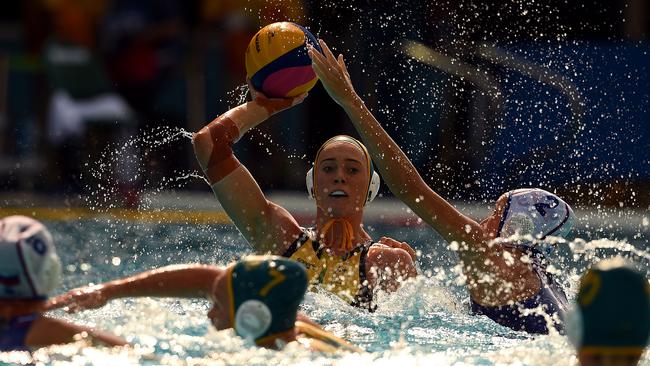
“She encouraged me to make use of the snacks, have smaller meals at breakfast, lunch and dinner to redistribute what I was eating … small little changes that ended up making quite a big difference, like the addition of Gatorade.”
Buckling successfully reversed LEA, more in-tune with her health and preparing for Tokyo2021.
The water polo star wants to see more research conducted on female athletes and health issues that affect them.
“I remember teachers saying that sometimes the long distance athletes don’t get their periods. It was just a fact in my head, everyone in my circle of friends just accepted that. But there was no research into why and whether it would have a negative impact on your training, health or wellbeing, ” Buckling said.
“They just copy and paste (research on male athletes) to females but there are so many other factors to take into account.”
Buckling’s experience with water polo coaches and medical staff was overwhelmingly positive, but she believes coaches across all sports must be educated about the dangers of LEA and RED-S
“(Coaches) want to get the best out of us, we want to get the best out of ourselves. If we can have strategies to help us train harder and work better and get more longevity out of the sport too and not get burnt out, I think that’s really important” Buckley said.

CHANGING FACE OF SPORT SCIENCE
THEY’RE all stars in their respective sports but Sam Kerr, Megan Schutt and Emma Zielke all have one thing in common.
They play for teams that have introduced period tracking to monitor for health conditions and to spark conversation around the taboo topic of menstruation.
Kerr’s Chelsea FC announced plans last year to tailor players’ individual training programs around different stages of their menstrual cycles.
“It comes from a place of wanting to know more about ourselves and understanding how we can improve our performance” Chelsea’s manager Emma Hayes said last year.
Zielke’s Brisbane Lions, the USA’s women’s soccer team and England’s women’s hockey team also log their athletes’ cycles.
Cricket Australia introduced menstrual tracking for national and state contract players last year to monitor for RED-S and low energy availability.
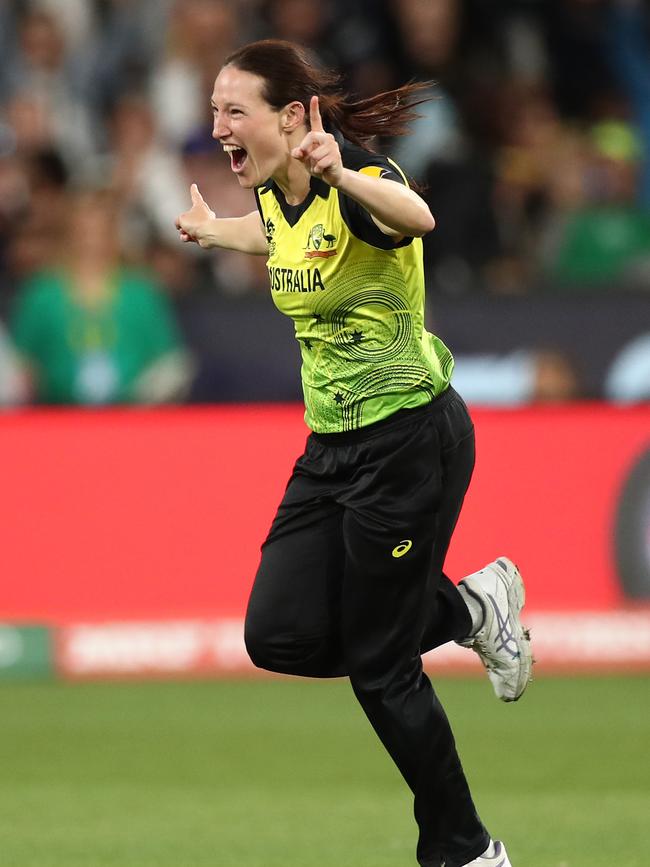
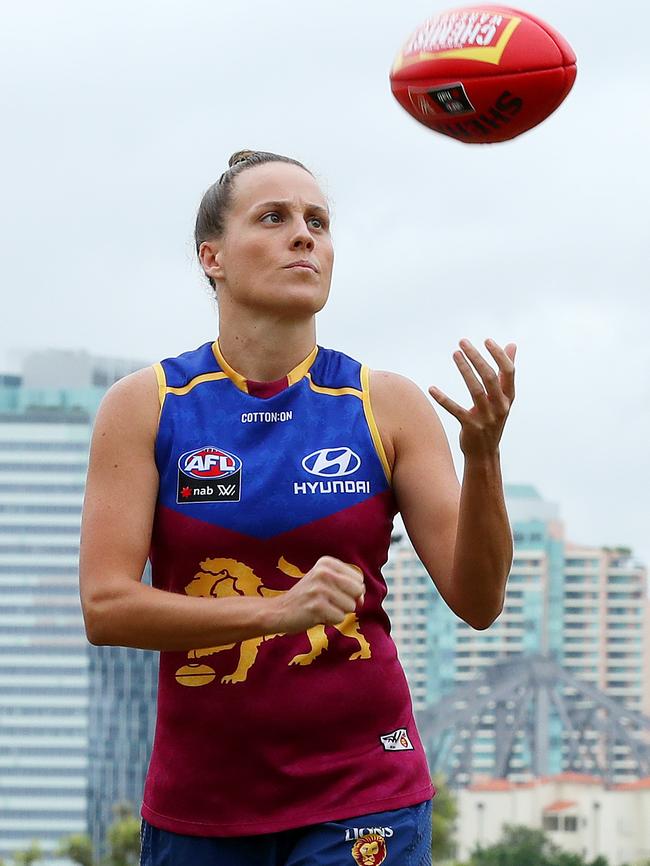
“We want to be able to identify irregular periods as it can be an early marker of underlying medical problems such as low energy availability or other underlying hormonal issues,” CA Dr Pip Inge said.
CA simply added one more question to the daily wellness questionnaire their athletes complete: are you on your period?
“If a player has answered ‘no’ for a certain number of days, the athlete and their doctors will receive an alert notifying them that they have not had a regular period and initiate this initial conversion” Dr Inge said.
Australian fast bowler Megan Schutt welcomed the move.
“I’ve got an app on my phone, I can tell you every period since 2014. I like knowing and I”m very in tune with my body,” Schutt said.
“I know that when I’m on my period I can’t lift as heavy in the gym so I know I need to go down 5 or 10kg in my hip thrusts.”
There is increasing research and discussion on how the fluctuating hormones throughout the menstrual cycle can impact training and performance.
Many athletes anecdotally believe they can lift heavier or run faster during different stages of their cycle.
At this stage, however, there is not enough evidence to draw solid conclusions on exactly how the cycle can be leveraged to enhance performance
“Where period tracking can be useful in relation to performance (at this stage), is in the identification of those who have symptoms such as pain or fatigue affecting their ability to train or compete and having an individualised approach” Dr Inge said.




